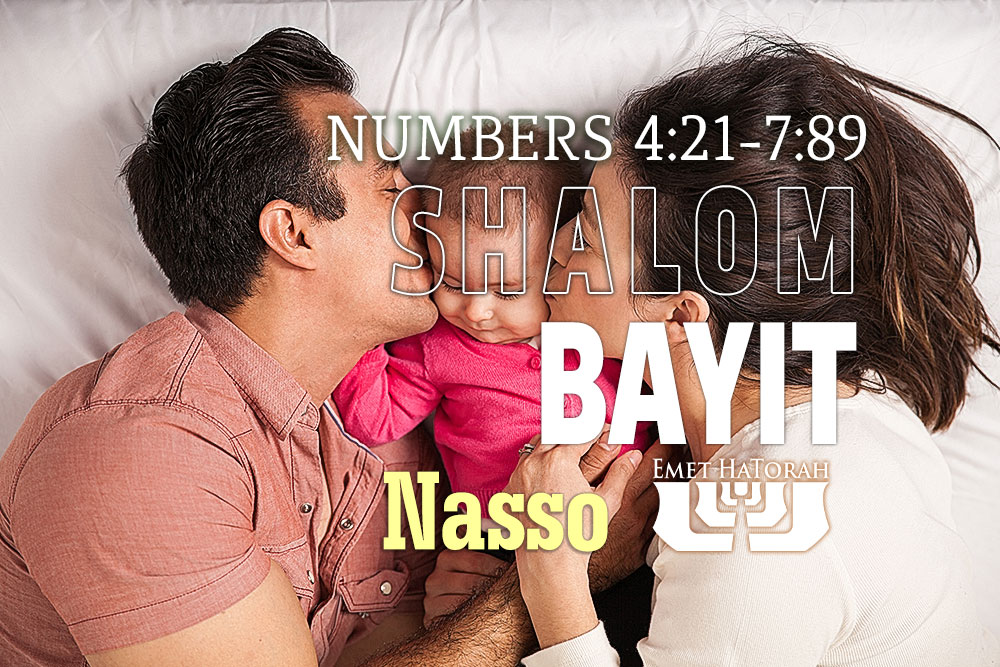Shalom Bayit
Series:

Parashat Nasso - Numbers 4:21 - 7:89
Babies. Isn't that what naturally comes to your mind after reading this week's Torah portion? Confused? Let me explain.
This week's reading contains an unusual ritual, the testing of the sotah (the wayward wife). This is a strange and even fantastical ritual, quite foreign and bizarre to the modern mind. To the modern ear it appears to be more akin to alchemy than biblical instruction. It goes like this:
If a woman was suspected of adultery and had been warned in regard to certain actions that could lead to inappropriate behavior, she would be brought to the kohen (priest) in the Tabernacle to undergo this unusual interrogation. It begins with her bringing "a grain offering of jealousy, a grain offering of remembrance, bringing iniquity to remembrance" (5:15). The kohen then takes a clay pot filled with sacred water from the bronze laver of the Tabernacle and adds to it some of the dust from the floor of the Tabernacle. He then uncovers her head and places her grain offering into her hands. He then makes her swear an oath. The oath attests either to her innocence or to her guilt. If she is innocent then the waters of cursing will have no affect. If she is guilty, however, then an awful curse will come upon her that will make her "womb swell and [her] thigh fall away" (5:22). After this, the kohen writes the entire curse upon a scroll. He then scrapes off the text-which contains the Divine Name of God-into the water mixture. After this, the woman drinks the mixture of water, dust and ink and waits to see if her innards will rot.
Does this not seem a bit insane? Why would the Creator of the universe prescribe such a strange ritual filled with such mystical components to be a test against adultery? Why do we need this exotic ritual? The fact of the matter is that human nature has a tendency to incline itself towards doubt and suspicion. A suspicious and jealous husband will never have peace of mind outside of the miraculous. Nothing will ease his mind in regard to the innocence of his wife other than a confirmation from the God of the Universe himself. Therefore, God created this elaborate procedure by which a woman could be either convicted or acquitted in a case where there was just enough evidence to suspect her impropriety, but not enough evidence to convict her by the traditional means. This "trial" would settle the case once and for all. There would be no human witnesses and no jury, but there would also be no doubt. If she suffered an excruciating death her guilt would be evident. However, if she lived through the process, not only would she be completely released from any suspicion, but she would be rewarded for her endurance. And her reward would be one of the best gifts of all: babies. Yes, her womb would be opened and she would begin bearing children (5:28).
So, what is the point of this mysterious instruction? The ultimate end-game for the test of the sotah is not necessarily the death of an adulteress, but the restoration of a home. The sages call this ultimate goal shalom bayit, or marital harmony (literally a "peaceful home"). Because a healthy marriage is so important, the God of the universe created this elaborate test by which a man and woman could be rejoined as one unit. It is so important to Him that He is willing that His name be erased and mixed with the dust of the earth in order that husband and wife would be reunited. How important is shalom bayit to you?








